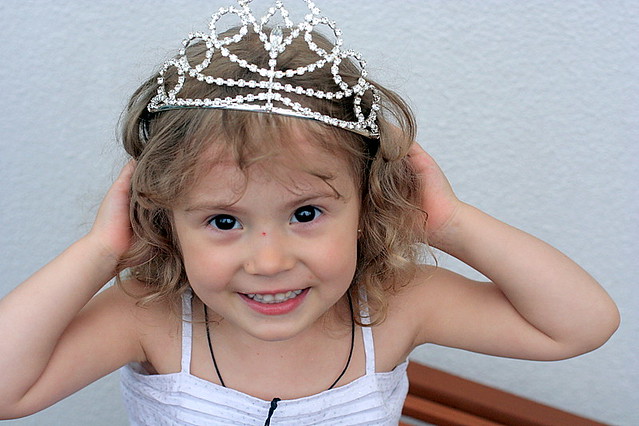|
Does your teen need a boost of self-worth? Even if you answered no, it's always good to immerse teens in activities that help raise their self-confidence levels. The teenage years can be difficult to get through. But a healthy dose of self-esteem can play a vital role in helping them get through all the ups and downs of hormones and life itself. Self esteem isn't always something that comes naturally for everyone and even when it does, it's still great to nurture it. By consistently taking advantage of naturally occurring events and activities, your teens' self-esteem can shine.
Teach your teen a new dance or let them show you. Learning and conquering a new skill is a great confidence booster. You may think your teen is embarrassed to dance with you. But the truth is, most teens look up to their parents and want to please them. Showing you the dance techniques can be mastered is a simple and fun way for your teen to feel accomplished. Practice this often for optimal results. Dancing isn't really my thing. But one of my teens loves it. So I frequently watch her perform all the great new moves she learns and invents. Since I am not much of a dancer, I don't usually dance along. But she knows myself and the entire family love watching her perform. Let your teen help with a meaningful task. Trusting your teen with something that you normally do can be good for enhancing self worth. It's a great feeling knowing someone trusts you with an important task. Think about how you would feel if your boss put you in charge of something normally done by a person in a higher position than you. That's exactly how your teen will feel. It might be a little overwhelming at first. But imagine how great your teen will feel when the task is accomplished. Give your teen more responsibility and make trust obvious. Teens need preparation for when they become adults. This is the perfect age to give them more responsibility. Teach them about employment and how to apply for jobs. Summer and after-school positions are great for this stage. Even if your family does not need the extra money, this can be an important life lesson. Other responsibilities may include work around the house, grocery shopping, helping figure out the family budget, and other household responsibilities. Self worth often comes from successfully performing both simple and complex tasks. Compliment your teen when it's warranted. If you notice that your teen has a cute outfit on or a nice hairstyle, don't be afraid to say so. You may think it sounds cheesy. But truthful compliments can help your teen feel good about self image. Pay attention to not only your teen's appearance but also any completed tasks. Whenever any of my kids does something nice without me asking, I make sure I thank them and let them know how much it means to me. Be sure not to to overdo it or your compliments won't be taken seriously. Always be genuine and honest with your words. Let your teen work or volunteer. Serving others is an excellent way to help your teen feel good inside. There is no other feeling like the one found inside when giving to others. Aside from that, each goal or task your teen completes will help give a sense of accomplishment. My teen daughter is looking forward to the day when she can become an official volunteer at a local shelter. Until then, we spend a great deal of our own time visiting the animals and giving them affection. The kids feel so great knowing they have touched the lives of so many animals. *I originally published this via Yahoo Contributor Network
0 Comments
by Kel McCollum, Health News Expert
For the past couple of decades, an erroneous psychological theory has dominated the way that not only schools and teachers, but also parents and family members, approach children. The “Self-Esteem Movement” dates back to 1969, but it wasn’t until 1999 that psychologists and researchers began to realize one critical flaw in the kind of thinking perpetuated by the movement itself: it did not work.
While self-esteem has always been a crucial element of the success of any child, the movement that sought to increase self-esteem in the next generation of adults by showering them with praise and telling them that they were “little princesses,” “geniuses,” and “winners” did little to nothing in terms of making children feel more comfortable and confident about themselves. In fact, this kind of excessive outward praise proved to be more debilitating for many students than the lack of self-esteem itself. 2010 Ohio State University study found that today’s college students crave this kind of praise above all else, even more than sex or money. The study was published in the Journal of Personality, and the results indicated that many of today’s young adults have a greater sense of entitlement than ever before. Jean Twenge, a fellow psychologist at San Diego State University, expands upon the results of similar studies and what it means to society in the book “Generation Me.” "What you really see is . . . it's this kind of empty self-esteem where you're supposed to feel special just for being you, that everyone's a winner and we should all feel good about ourselves all the time, which kind of ignores that self-esteem is usually based on something,” Twenge says. All of this information begs the question of exactly how parents can actually help boost their child’s self-esteem. While praise does not actually help add to a child’s sense of self-worth, accomplishing things and achieving personal goals does. Achievement and goals are defined differently for each child, and for each age group, but there are two main things that parents can do to help: finding activities that offer the opportunity for achievement, and providing guidance and encouragement. For younger kids, a sense of accomplishment could be derived from the completion of a craft, a coloring page, or even a board game. Sports offer greater self-confidence for children of all ages, and self-esteem is could also be derived from a good grade or exceptional performance in school for school-aged children. But goals should not all be centered around one type of activity. Psychologists emphasize that social activities, settling disagreements, and making friends are equally important. Children must learn effective social and relationship skills as well as intellectual and athletic skills. SOURCES: Roy F. Baumeister, “Does High Self-Esteem Cause Better Performance, Interpersonal Success, Happiness, or Healthier Lifestyles?” Journal of the Association for Psychological Science. http://psi.sagepub.com/content/4/1/1.abstract Maureen Salamon, “For College Students, Praise May Trump Sex and Money,” Business Week. Richard Lee Colvin, “Losing Faith in the Self-Esteem Movement,” Los Angeles Times. http://articles.latimes.com/1999/jan/25/news/mn-1505 Michael Hurd, “The Error of the Self-Esteem Movement,” Capitalism Magazine.
Kel McCollum is a full-time freelance writer with over five years of experience in writing for the web and search engine optimization best practices. She also has extensive experience as a working journalist and has produced numerous articles for print publications in the area of health, travel, self-improvement, and business topics.
Ms. McCollum works to help small business owners and internet marketers make the most of the Internet by using keyword-optimized content that drives traffic and increases conversions. She also provides information, resources, and mentoring to other freelancers and aspiring writers through the Writer Reality website. |
Instant Download On Order
Categories
All
Archives
May 2024
|
- Brand Shamans
- Brand Healing
- Inner Healing
-
INTENT-SIVE NATURE
- Content & Brand Elevation
- Healing Jewelry & Talismans
- Bath, Beauty, & Self-Care
- Healing Sessions
- Rituals, Herbs, & Altar Supplies
- Gawwwdess Baby Boutique
- Soul Flame Gifts
- Yoga & Meditation
- Books & Media
- Education & Homeschool Resources
- Home, RV, & Decor
- Clothing
- Pets
- Custom Orders
- Monthly Subscription Boxes
- October Festivals
- FLOW-Key Parenting
- About & Contact
- RV, Nature, & Travel Shamans
- Souls Within
- Life & Home
- Heart 'N Mind Homeschool
- The Homeschooling Mommy
- Books & Authors
- Speak Up!
- Pawsitive Pet Parenting
- Manifesterz
- Gifts In Minutes
- Brand Shamans
- Brand Healing
- Inner Healing
-
INTENT-SIVE NATURE
- Content & Brand Elevation
- Healing Jewelry & Talismans
- Bath, Beauty, & Self-Care
- Healing Sessions
- Rituals, Herbs, & Altar Supplies
- Gawwwdess Baby Boutique
- Soul Flame Gifts
- Yoga & Meditation
- Books & Media
- Education & Homeschool Resources
- Home, RV, & Decor
- Clothing
- Pets
- Custom Orders
- Monthly Subscription Boxes
- October Festivals
- FLOW-Key Parenting
- About & Contact
- RV, Nature, & Travel Shamans
- Souls Within
- Life & Home
- Heart 'N Mind Homeschool
- The Homeschooling Mommy
- Books & Authors
- Speak Up!
- Pawsitive Pet Parenting
- Manifesterz
- Gifts In Minutes



 RSS Feed
RSS Feed





